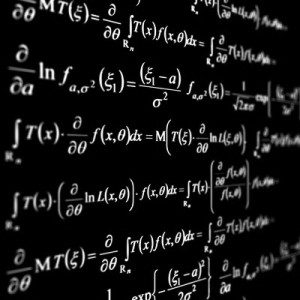A civil and environmental engineering student from the UH Cullen College of Engineering was recently awarded the Robert J. Melosh Medal for his doctoral dissertation in the area of finite element methods and computational mechanics.
The Robert J. Melosh Medal Competition, named in honor of a civil engineering professor who pioneered research in the areas of finite element methods and computational mechanics, provides an international forum for students to present their dissertations and showcase their research.
To apply for the medal, doctoral students must submit extended abstracts on their doctoral research for a blind review by a panel of distinguished computational mechanics researchers from around the world. Each year, six finalists are selected by the panel to participate in a symposium at Duke University, where give oral presentations on their abstracts and participate in a rigorous question and answer session before an expert panel.
This year, the Robert J. Melosh Medal recipient was Maruti Kumar Mudunuru who earned his doctoral degree in civil and environmental engineering from the Cullen College in the fall of 2015. As a student, Mudunuru worked with his faculty advisor Kalyana Nakshatrala to develop various numerical methodologies to address common subsurface challenges, such as hydraulic fracturing, contaminant transport and bioremediation, a waste management technique that uses organisms to remove or neutralize pollutants. His dissertation, for which he received the 2015 best dissertation award from the Cullen College, was titled “On Enforcing Maximum Principles and Element-wise Species Balance for Advective-Diffusive-Reactive Systems.”
For the competition, Mudunuru elaborated on the finite element methods connected to this research in a talk titled “Structure-preserving Finite Element Formulations for Advective-Diffusive-Reactive Systems.”
Though the application and selection process were extensive and high pressure, Mudunuru said that receiving the Melosh Medal encouraged him to continue pursuing his research career.
“There are no words to describe this achievement and success,” said Mudunuru. He added that he was grateful to the engineering community at the University of Houston for providing him with invaluable guidance, support and the freedom to pursue his interests.
“Winning this award wouldn’t have been possible without the help and feedback I received from professor Nakshatrala, my postdoc mentors, the dissertation committee, my other professors and my classmates,” he said.
Since earning his doctoral degree from the Cullen College, Mudunuru has served as a postdoctoral research associate in the Earth and Environmental Sciences Division of the Computational Earth Science Group at Los Alamos National Laboratory (LANL). Mudunuru said that his doctoral research paved the way for his work at LANL.
“[At LANL], I am using and improving the techniques I developed during my Ph.D. dissertation to solve practical problems related to energy security and the environmental impact of unconventional oil and gas extraction,” he said.
Mudunuru’s postdoctoral work revolves around developing robust models and inversion methods to advance research about chemical, thermal and mechanical processes for enhanced geothermal systems, gas migration, contaminant transport, fracture networks and induced seismicity.
